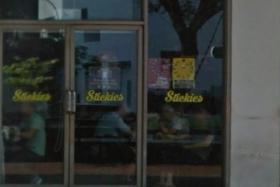SBS Transit lawsuit: Ex-driver says company's built-in overtime is confusing
The lawyer for transport operator SBS Transit (SBST) sought to show in the High Court on Wednesday (March 23) that bus drivers benefit from what it calls a "built-in overtime" component in their pay.
But former driver Chua Qwong Meng, who is leading a court fight by 13 drivers against SBST, said through a Mandarin interpreter: "We are not highly educated; we are confused. How would we be able to understand these things?"
Wednesday was the second day of a hearing into a test case against the transport operator.
Mr Chua contends in his lawsuit against his former employer that through the built-in overtime, SBST has gained four hours of "illegal" overtime.
Senior Counsel Davinder Singh suggested that Mr Chua's misunderstanding of built-in overtime was a reason for the "wrong" numbers which led the former driver to allege that he had worked overtime for more than the legal limit of 72 hours a month.
Mr Chua, 62, who worked for SBST from April 2017 to February 2020, is seeking unspecified damages from SBST, claiming among other things, that he was underpaid for overtime work.
He alleged that the company had breached the Employment Act and his employment contract as there were several instances where he worked for seven consecutive days or more before having a day off.
He also argued that he should be paid for "idle time" - the time spent waiting to start work at the bus depot and waiting for the company transport after work.
In its employment contracts, SBST requires drivers to work 48 hours a week, including four hours of " built-in overtime".
Once a driver works for 43.5 hours, which excludes rest and meal times, he would be paid his salary plus the built-in overtime.
A driver who works beyond the 43.5 hours would get overtime pay for those additional hours.
Mr Singh said overtime pay as well as the bus drivers' weekly allowance were computed on a higher rate because of the inclusion of the built-in overtime, or BIOT, component.
"You have completely misunderstood what BIOT was or is," said Mr Singh.
Mr Chua disagreed.
Mr Singh added that it was clear from the documents before the court that Mr Chua never worked more than 72 overtime hours as he had claimed.
Mr Chua disagreed, but said he has not reviewed the documents.
Mr Singh also questioned Mr Chua for his claim for "idle time", pointing out that SBST was not contractually obliged to pay bus drivers outside their working hours.
Mr Chua said he had to rely on company transport to and from the depot because he did not have his own transport and could not afford to pay for the midnight surcharge for taxis.
Mr Singh put it to him: "What you call idle time has nothing to do with the work you are required to do for SBST."
Mr Chua disagreed. "When I reach the depot, that means I have started work."
The trial continues on Thursday.
Get The New Paper on your phone with the free TNP app. Download from the Apple App Store or Google Play Store now



